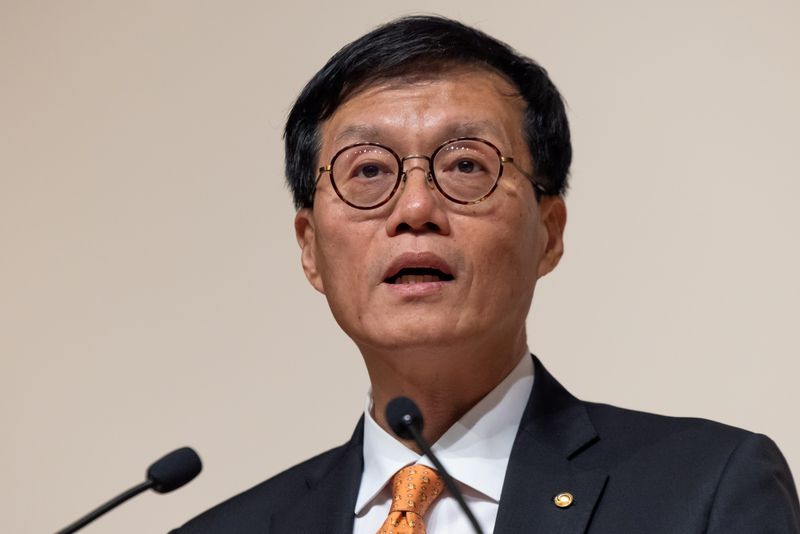SEOUL (Reuters) - South Korea's central bank governor said on Tuesday the pace of consumer inflation is likely to continue to slow, feeding expectations the Bank of Korea will start cutting interest rates towards the end of this year.
"Considering the recent slowdown in international oil and agricultural product prices, future prices are expected to continue a gradual slowdown, in line with our May forecasts," Governor Rhee Chang-yong said in a statement prepared for the bank's biannual review of inflation conditions.
Inflationary pressure from domestic demand is likely to stay contained, while exports growth is expected to take the driver's seat in the economy seen growing 2.5% this year, he added.
Tuesday's assessment supports analysts consensus that the BOK will cut interest rates by 50 basis points in the fourth quarter as headline inflation is seen easing to its target rate of around 2% towards the end of this year or early next year.
The BOK extended its interest rate pause for an 11th straight meeting in May, keeping it restrictive after raising rates by a cumulative 300 basis points to 3.50% since mid-2021.
South Korea's headline inflation slowed for a second straight month to a 10-month low of 2.7% in May, while core inflation also eased to 2.2% from 2.3% in April.

The BOK also noted that although inflation is headed towards its target rate of 2%, the cost of living in Asia's fourth largest economy remains elevated compared to other major countries.
An index for the cost of food, shelter and clothes was at 155 for South Korea in 2023, above the average of 100 for countries in the Organisation for Economic Co-operation and Development, data compiled by BOK showed.